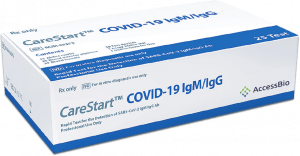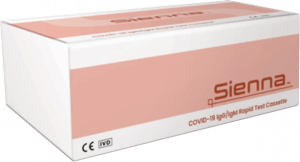Rapid Antibody Tests
An antibody test looks for antibodies that are made by the immune system in response to a threat, such as a specific virus. Antibodies can help fight infections.
DEFINITION:
A rapid antibody test uses a blood sample from the fingertip to assess if you have IgM and IgG antibodies to the virus that causes COVID-19, with results available in 15 minutes.


